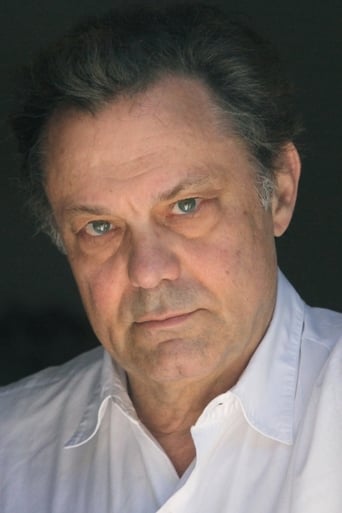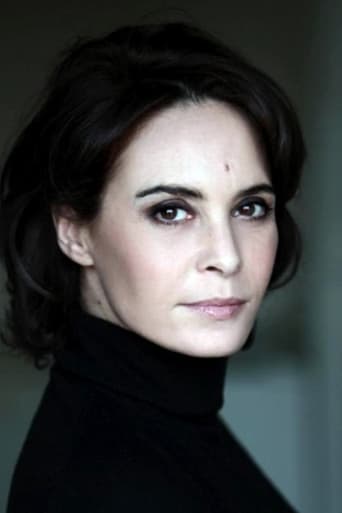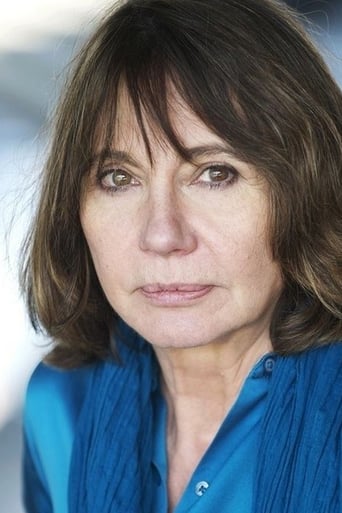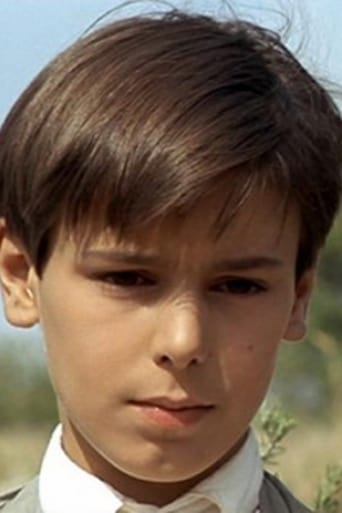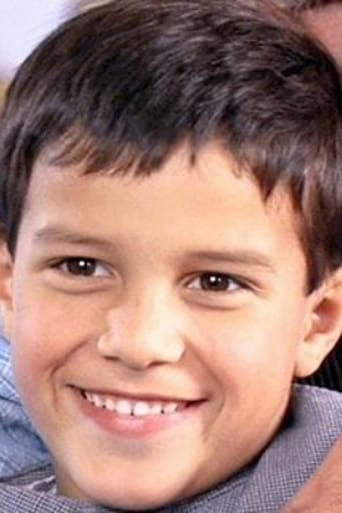ElMaruecan82
"My Mother's Castle" is the second opus of Marcel Pagnol's autobiographical memories adapted by Yves Robert in 1990, following the glorious "My Father's Glory". Both are parts of the same story, split in two maybe to let time to meditate on the enchantment induced by the first.Indeed, "My Father's Glory" was an exploration of childhood with a mixture of tenderness, nostalgia and idealization of the people who inhabited these memories, especially the parents: Joseph, the literate schoolteacher capable to absorb every single piece of knowledge and inculcate them to his son, and Augustine, the most caring and loving of all the mothers.The first film was focused on the relationships between Marcel and his father, reaching an emotional climax with the immense pride felt after a memorable hunting trip. But all through the film, there were glimpses of Augustine's oedipal deification. She, more than any other character, was treated with a particular grace and delicacy, people could shout, argue or laugh, she was the quiet strength, the emotional pillar of the family, standing on the symbolic pedestal of her indescribable angelic beauty."My Mother's Castle" explores the maternal bond with more depth.The film features the same episodes in the countryside, where the Family goes every holiday, to the same house. One of its delights is to make us revisit a location that became familiar to us as if it was part of our own memories. When the film starts, like Marcel, we yearn for this magical Provence and hope the film won't take place in the city. Our hearts long for that escapism and thankfully, they do escape.And they get back to the green hills, the grasshoppers, to Lili, Edmond and the wonderful gallery of colorful characters ... and we're glad to see them as if they were old friends. The countryside is the perfect backdrop for Pagnol's memories, and probably the only element deserving its idealization. For Marcel, the bond with the countryside is almost parental as it awakened his most endearing memories. But initial emotions put apart, "My Mother's Castle" was likely to create a déjà-vu feeling without bringing much newness to the story.And as glad as I was to be back to the countryside, and see these faces again, I had mixed feelings regarding the beginning, which didn't add much since the first film and even lost itself in the episode involving Isabelle, an aristocratic girl infatuated on Marcel, oddly treating him like a vassal. This chapter of Marcel's life was so weird, although significant, I was hoping it wouldn't occupy the whole story, even Jean Rochefort's performance as the eccentric father left me perplexed and I felt the film had to be more than a series of anecdotes. But then, the story picks up and the magic reappears when the Pagnols start going every weekend to the house.They meet in their road a guard who was one of Joseph's former pupils; he benevolently proposes them to use a shortcut along the canal, instead of their usual path that cost them four hours of walking through a winding road. Joseph reluctantly accepts the spare key to open several locked gate doors along the canal and across private lands. It became a habit, Joseph learned to use the boys as scout observers, and as the story progresses, we follow them walking along the estates bending over, our hearts pounding that they wouldn't meet a bitter caretaker with his ferocious dog.Across their path, they meet an old and affable aristocrat who don't mind their trespassing and even offers bright red roses to Augustine. He instantly creates the picture of Augustine as rooted in Marcel's memory, a beautiful and frail women holding red roses, and out of fear of dogs, gets nervous when they come to the last door. They finally find the door padlocked and as we expect, the encounter with the guard happens and provides one of the film's most critical moments where for once, one person not even touched by the sort of divine grace embracing the story, and threaten Joseph to prosecution, causing Augustine to faint, succumbing to her eternal fear.Of course, all ends well that ends well, but it's not much in the resolution of this subplot than the real conclusion that the film's emotion finally implode. After a happy celebration, the film takes a surprisingly dark turn enlightening us on what became of these people who made Marcel's childhood. It starts with two hands holding each other, following a black car, Marcel and Paul mourn their mother prematurely dead, Lili died in the First World War, Paul became a goatherd, affected by the countryside as Marcel was, and left the world in the thirties. For the first time, the film conveys sad emotions as a way to cancel off the happiness and fairy-tale like aspect of the earlier memories. And we understand it's precisely because of these sad memories that Marcel Pagnol looked at the years preceding them with happier eyes.Lately, he'd become the successful film-maker we know, and after turning a large house in Marseilles into a film studio, he finds the infamous door, and by breaking it, he breaks the spell that caused so much torments in Augustine's heart. Like the image of Marcel holding the partridges to the sky, illustrating his father's (moment of) glory, the mother's castle awakened the image of Augustine holding the red roses on her, this is the angelic and fragile image that would forever symbolize Augustine, the queen of in Pagnol's castle of memories..More than anything, the power of the two films is to translate universal feelings into powerful imagery, this is what childhood is all about, images rooted in our hearts, this is what Cinema, as an art-form, is all about, and this is why "My Father's Glory" and "My Mother's Castle" are one of the summits reached by French cinema, higher than these immortal hills of Provence.
writers_reign
I'm delighted to find that every single comment on this beautiful movie is Positive, indeed, it would be difficult if not impossible to find anything negative to comment on. If you've ever been a child, if you ever had a beautiful but fragile mother, if you ever danced and skipped through a Golden childhood - or just wished you did - then this is for you; it's Meet Me In St Louis without the songs, It's I Remember Mama without the Norwegian accents, The Happy Time without the Canadian overtones and any other film you can think of that evokes those fleeting days of enchantment When We Were Very Young. Above all it's a wonderful antidote to the angst, stress, violence etc that comprise the fabric of the modern cinema - and don't even mention the anti-cinema brigade as personified by Godard who could no more shoot even one Frame as lyrical as this than he could master Mandarin in 24 hours. It would be churlish to single out anyone from the superlative cast and the only thing better than watching it for the first time is to watch it for the twentieth. Magnifique.

